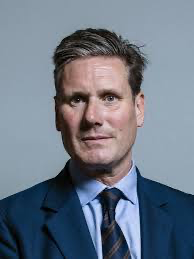British Prime Minister Keir Starmer has announced that his government is considering establishing overseas facilities—known as “return hubs”—for migrants whose asylum applications in the UK have been denied.
During an official trip to Albania on Thursday, Starmer told GB News that preliminary discussions are underway with other nations to host these return centres.
He explained that the proposed hubs would facilitate the removal of individuals who have exhausted the UK’s asylum process.
“We’re now exploring the idea of return hubs, where people who have been through our system and are due to leave the UK can be relocated,” Starmer said.
The Prime Minister is under increasing political pressure to curb the number of irregular migrants entering the country, particularly amid growing support for the anti-immigration Reform UK party, led by Nigel Farage.
Since taking office, the Labour-led government has reversed the previous administration’s controversial plan to deport undocumented migrants to Rwanda, opting instead for alternative approaches to immigration enforcement.
Starmer’s visit to Albania—part of a broader effort to strengthen cooperation on migration issues—comes on the heels of a tougher stance on immigration.
New measures unveiled this week include stricter limits on the recruitment of foreign care workers, extending the wait time for permanent residency, and enhancing powers to deport non-UK nationals with criminal records.
These policies are seen as a direct response to Reform UK’s rising popularity, particularly after the party gained ground in recent local elections.
Labour has committed to reducing net migration, which reached 728,000 in the year ending June 2023.
That figure had previously peaked at 906,000, a stark contrast to the average of around 200,000 throughout much of the previous decade.
In addition to record levels of legal immigration, the UK is also grappling with an increase in unauthorized arrivals.
Over 12,500 people have crossed the English Channel so far this year, according to figures from the UK’s interior ministry compiled by AFP.


